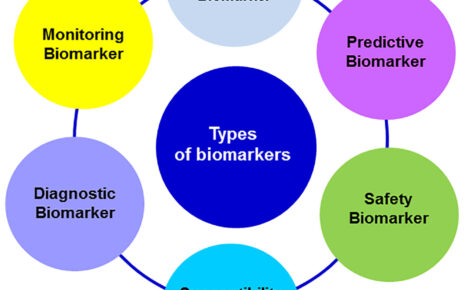Becoming a mother is a joyful and life-changing experience, but it often comes with hidden challenges that can take a toll on your physical and mental well-being. From the emotional stress of caring for a newborn to the physical strain of breastfeeding and recovery, many new moms face issues that aren’t openly discussed. Back pain, dental problems, and mental health struggles are just a few of the common discomforts that can quietly impact your quality of life.
Recognizing these challenges is the first step toward addressing them. By acknowledging the full scope of changes that come with motherhood, you can begin to seek the right support and resources. Taking care of your health is essential—not just for you, but also for your ability to care for your baby. With the right help, you can navigate this journey with greater confidence, resilience, and joy.
The Role Of A Lactation Consultant For Breastfeeding Moms
Breastfeeding is a deeply rewarding experience, but it can also bring unexpected challenges, especially for new moms. Issues such as poor latching, low milk supply, and breastfeeding-related pain are common and can feel overwhelming without the right support. That’s where a lactation consultant becomes incredibly valuable. According to Corporate Lactation Services, these professionals specialize in helping mothers navigate the complexities of breastfeeding by offering personalized advice and hands-on guidance tailored to their unique needs. Visit their website for more info at https://corporatelactation.com/.
A lactation consultant can assess your technique, recommend adjustments for better positioning, and help manage any discomfort or pain you may experience. Beyond solving immediate issues, they also offer support for maintaining your own nutrition and overall health while breastfeeding. Their holistic approach ensures both you and your baby are set up for success. With the help of a lactation consultant, you can overcome common obstacles, build confidence, and focus more fully on bonding with your baby and enjoying the journey of motherhood.
Addressing Back Pain: The Importance Of Spinal Health For New Moms
Back pain is a frequent concern for new mothers, driven by the physical demands of caring for a baby, lifting, bending, and extended periods of holding your child. These repetitive movements can put significant strain on your spine, especially when your body is still recovering postpartum. If not addressed, this discomfort can become chronic and interfere with your ability to enjoy motherhood.
To protect your spinal health, it’s important to focus on proper posture, use ergonomic baby gear, and incorporate gentle core-strengthening exercises into your routine. A physical therapist with postpartum expertise can provide tailored guidance to help you recover safely and effectively.
Creating a spinal care team that includes a chiropractor, physical therapist, and massage therapist offers a holistic approach to managing pain and supporting long-term wellness. By taking proactive steps, you can ease discomfort, build strength, and feel more confident as you care for your growing family.
Forming A Spinal Health And Recovery Team
Building a dedicated spinal health team is one of the most effective steps a new mom can take to manage back pain and support long-term recovery. The physical demands of early motherhood—nursing, lifting, baby-wearing, and frequent bending—can place ongoing strain on your spine, often leading to discomfort that, if unaddressed, may become chronic.
A multidisciplinary team provides holistic care tailored to your unique postpartum needs. Chiropractors can help realign the spine and improve mobility after pregnancy-related shifts. Physical therapists focus on rebuilding core strength, improving posture, and teaching safe body mechanics to prevent reinjury. Massage therapists play a key role in easing muscle tension, reducing inflammation, and supporting overall relaxation, an essential part of healing when sleep is limited and stress is high.
Together, these specialists create a personalized plan that supports both immediate relief and long-term spinal health. With their guidance, you can manage pain more effectively, regain physical strength, and avoid future complications. Investing in a spinal care team not only enhances your daily comfort but also helps you feel stronger, more balanced, and better equipped to enjoy the journey of motherhood.
A Holistic Look At The Silent Health Issues New Moms Endure
Motherhood is filled with joy, but it also brings silent health challenges—like back pain, dental issues, and mental health struggles—that can quietly impact your quality of life. Taking a holistic approach means recognizing how your physical, mental, and emotional health are deeply connected. Based on insights from Doro Mind, addressing mental wellness is essential to maintaining balance and resilience during motherhood. This perspective helps you identify and address issues early, while encouraging integrated solutions that support your overall well-being. By tuning into your body’s needs and prioritizing your health, you empower yourself to care for both you and your family more effectively.
Dental Care Postpartum: Why It Matters
While dental health might not be your top priority after giving birth, it’s an important part of your overall postpartum wellness. Hormonal changes during pregnancy can increase your risk for gum disease, tooth decay, and tooth sensitivity—issues that can linger or worsen if not addressed. Staying consistent with brushing, flossing, and using mouthwash, along with scheduling regular dental check-ups, helps protect your oral health during this demanding time.
Taking care of your teeth also benefits your baby. Harmful bacteria that cause cavities can be passed from mother to child through shared utensils or kisses. By keeping your mouth healthy, you reduce that risk and promote better dental habits for your whole family. Prioritizing postpartum dental care not only helps you feel better physically but also supports your long-term well-being and your child’s health.
Preventive Dental Care For Families
Preventive dental care is essential for maintaining a healthy mouth and creating lasting habits for the whole family. Regular check-ups help catch issues early and reduce the risk of problems escalating into serious concerns, such as sudden toothaches, broken teeth, or infections. Good daily habits—brushing and flossing with fluoride toothpaste—protect teeth from decay and support long-term oral health.
While prevention is the goal, it’s also important to remember that emergency dental services may be needed when unexpected problems occur. Knowing where to go and who to call during a dental emergency offers peace of mind and ensures timely care when it’s most critical.
A nutritious diet rich in fruits, vegetables, and whole grains, along with limiting sugary snacks and drinks, also plays a key role in prevention. Educating children about dental hygiene from an early age prepares them to avoid dental issues down the road. By staying proactive, you not only protect your family’s oral health but also reduce the likelihood of needing urgent care.
Integrated Care Approaches That Make A Difference
Integrated care is key to supporting new moms through the many health challenges that can arise after childbirth. By combining expertise across disciplines—such as lactation consultants, physical therapists, and mental health professionals—this approach ensures your care is comprehensive and personalized. Incorporating stress-reducing practices like mindfulness, along with proper nutrition and gentle exercise, further supports recovery and emotional balance. Embracing integrated care helps address both visible and silent struggles, empowering you to heal more fully and build a strong foundation for lasting health and well-being.
Conclusion: Prioritizing Health And Wellness For New Moms
As you navigate the rewarding yet demanding journey of motherhood, prioritizing your health and wellness is essential. Hidden pains—like back issues, dental concerns, and mental health struggles—can easily go unnoticed but have a lasting impact on your well-being and ability to care for your family.
Seeking support from a lactation consultant, building a spinal health and recovery team, and embracing preventive, holistic care can help you manage these challenges effectively. Integrated care not only addresses current concerns but also promotes long-term health and resilience. Taking care of yourself isn’t a luxury—it’s a necessity. By putting your health first, you lead by example and give yourself the strength to fully enjoy the journey of motherhood.





